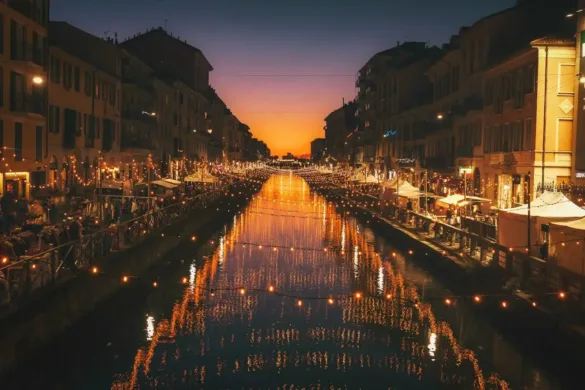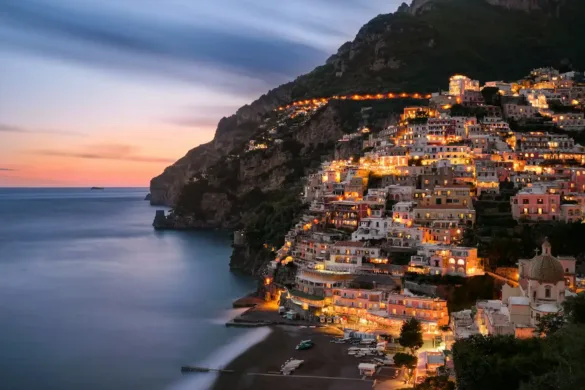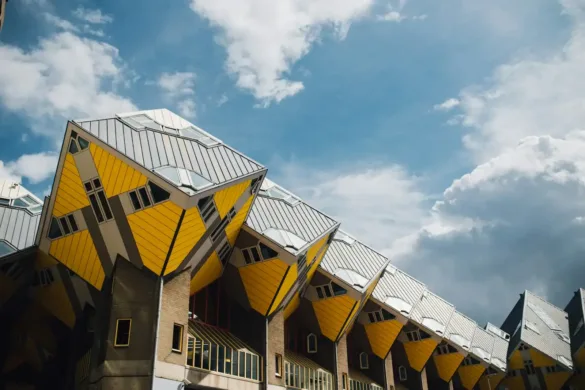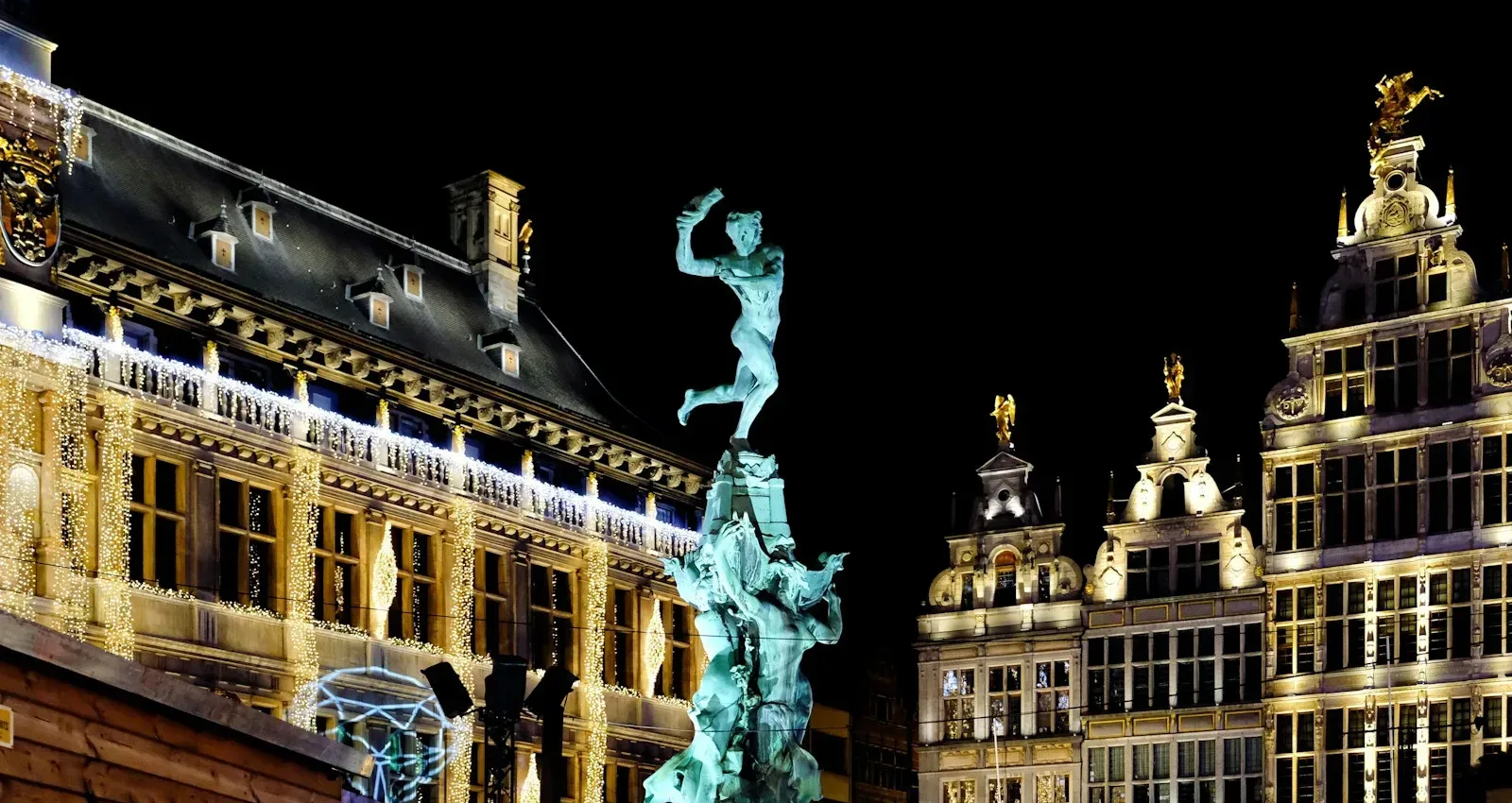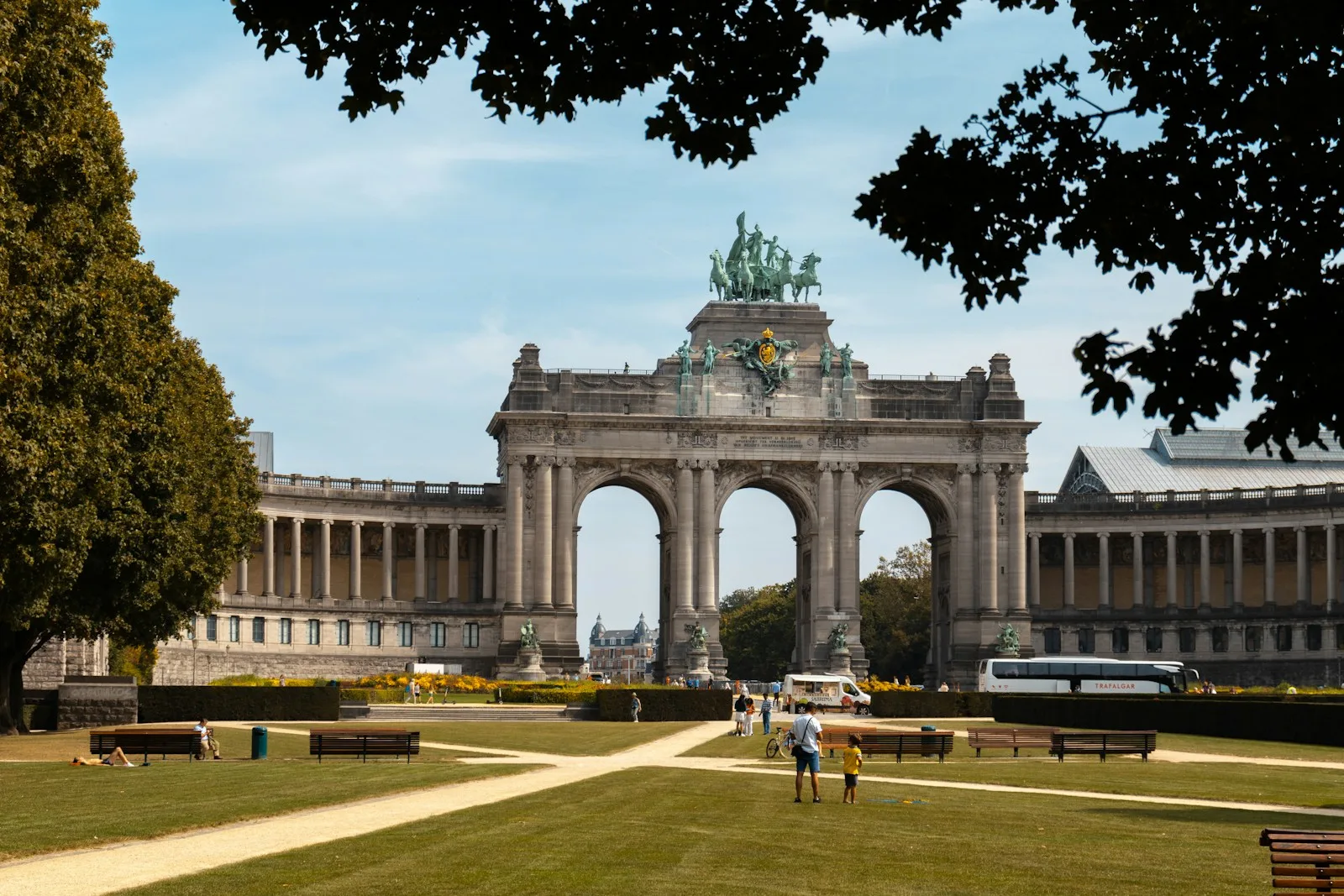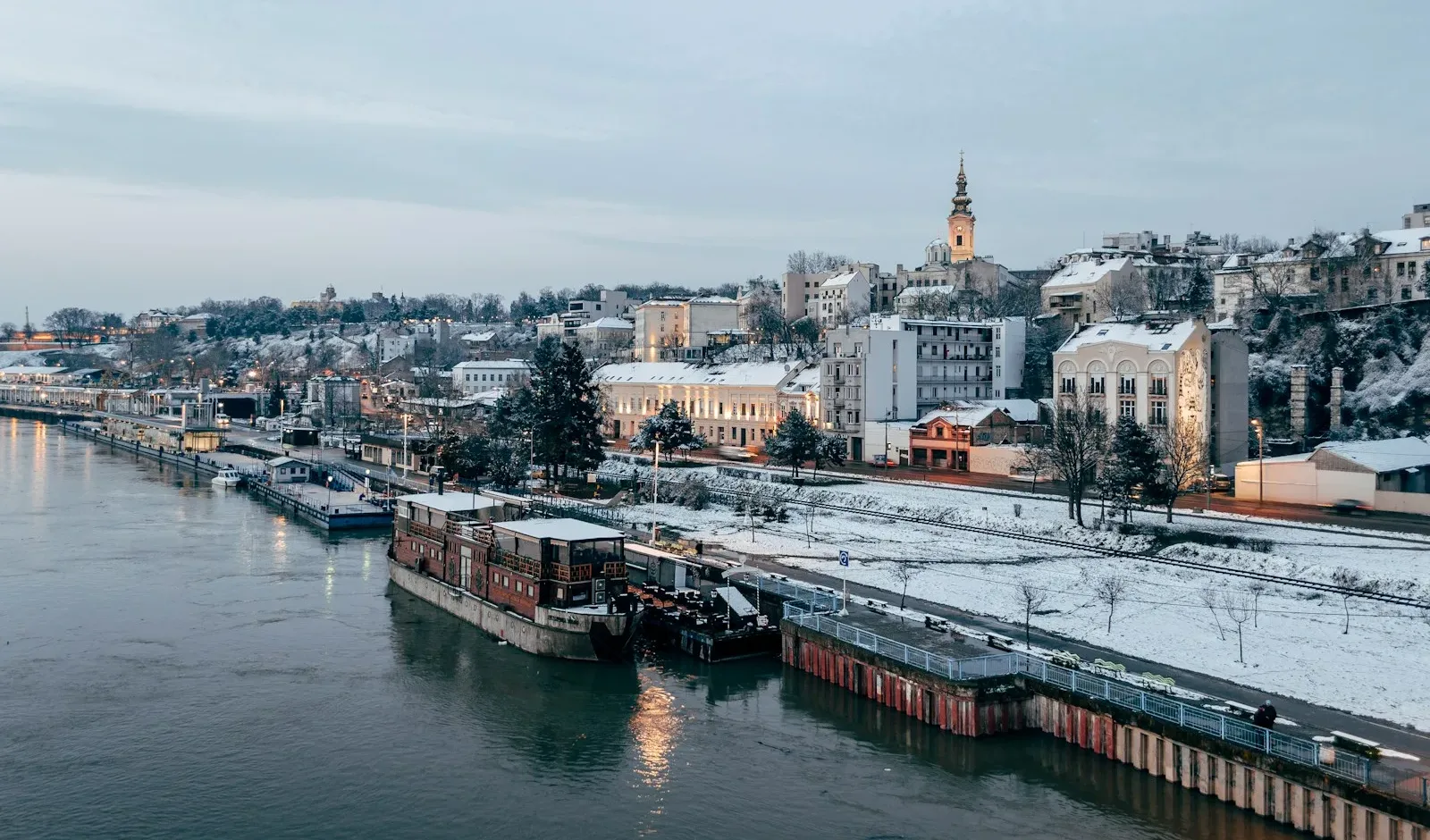Russia Travel Guide: From Imperial Cities to Vast WildernessIntro to Russia Travel Guide
Russia is the world’s largest country, spanning two continents and eleven time zones, offering travelers an unmatched variety of landscapes and cultures. From the onion domes of Moscow and canals of St. Petersburg to the frozen depths of Siberia and the volcanoes of Kamchatka, Russia captivates with both grandeur and mystery. Whether you come for history, art, or adventure, this Russia travel guide will help you uncover the treasures of a nation where Europe meets Asia.
Where to Go in Russia
Irkutsk | Kazan | Moscow | Murmansk | Nizhny Novgorod | Novosibirsk | Saint Petersburg | Sochi | Vladivostok | Yekaterinburg
💡Quick Facts:
Destination: Russia
Continent: Europe & Asia (transcontinental)
Country: Russian Federation
Administrative Divisions: 85 federal subjects (22 republics, 9 krais, 46 oblasts, 3 federal cities, 1 autonomous oblast, 4 autonomous okrugs)
Area: 17,098,246 km² (6,601,668 mi²) – largest country in the world
Population: ~146 million
Density: ~8.5 people per km²
Capital: Moscow
Regions/Subregions: Central Russia, Siberia, Russian Far East, Caucasus, Volga Region, Ural Mountains, Northwestern Russia
Official & Regional Languages: Russian (official); 35+ minority languages recognized regionally (e.g., Tatar, Chechen, Bashkir)
Currency: Russian Ruble (RUB, ₽)
Time Zone(s): 11 time zones (UTC+2 to UTC+12)
Airports: Sheremetyevo (SVO, Moscow), Domodedovo (DME, Moscow), Vnukovo (VKO, Moscow), Pulkovo (LED, St. Petersburg), Novosibirsk Tolmachevo (OVB), Vladivostok (VVO)
Climate: Continental to subarctic – cold winters, warm summers; tundra and polar climate in north; humid subtropical on Black Sea coast
Known For: Kremlin & Red Square (UNESCO), Trans-Siberian Railway, Hermitage Museum, Lake Baikal, St. Basil’s Cathedral, ballet, vast natural landscapes
🛂Arrival Info:
Visa Policy: Most travelers require a visa; e-visa available for certain nationalities
Visa-Free: Citizens of ~50 countries (mostly CIS, Latin America, parts of Asia)
Visa on Arrival: Not available (except special cases)
Max Tourist Stay: Typically 30–90 days, depending on visa type
Onward Travel: Proof of accommodation and itinerary often required
Immigration Authority: Ministry of Foreign Affairs of Russia
🏥Health Info:
Vaccines Required: None for entry
Vaccines Recommended: Routine immunizations, Hepatitis A, Hepatitis B, Tick-borne Encephalitis (for rural/Siberian travel), Rabies for long-term stays
Health Risks: Tick-borne diseases in rural areas, winter hypothermia risks
Hospitals: High-standard hospitals in Moscow, St. Petersburg; limited services in remote areas
Insurance: Mandatory for visa issuance; must cover full stay
Emergency Number: 112 (general emergency)
🚑 Check travel insurance options for travel emergencies, delays, and medical needs abroad — Get coverage here
💉 Stay Informed with Official Updates: WHO – International Travel & Health | CDC – Travel health updates
🚨Travel Advisory:
Safety Level: Political/security risks vary; consult government advisories before travel
Petty Crime: Pickpocketing in tourist hubs (Moscow, St. Petersburg)
Serious Risks: Terrorism risk in North Caucasus, restrictions in border areas
Natural Risks: Severe winter weather, wildfires in Siberia, floods in Far East
🌍Track Real-Time Official Updates: US Travel Advisory | UK Foreign Travel Advice | Government of Canada | NZ SafeTravel
🥳Holidays:
New Year Holidays: Jan 1–6
Orthodox Christmas: Jan 7
Defender of the Fatherland Day: Feb 23
International Women’s Day: Mar 8
Victory Day: May 9
Russia Day: Jun 12
Unity Day: Nov 4
💰Visitor Info:
Currency: Russian Ruble (RUB, ₽)
Cards & ATMs: International cards restricted; cash (rubles) necessary due to sanctions
Tipping: 5–10% in restaurants; round up taxi fares
Tourist Taxes: Hotel registration fees apply in some cities
Average Budget: $50–80/day (budget), $100–200/day (mid-range), $250+ (luxury)
🛫Airports:
SVO – Sheremetyevo (Moscow): Main international gateway
DME – Domodedovo, VKO – Vnukovo: Serve Moscow area
LED – Pulkovo (St. Petersburg): Northern capital access
Others: SVX (Yekaterinburg), KHV (Khabarovsk), OVB (Novosibirsk), VVO (Vladivostok)
🧳 Delayed or canceled flight? Check if you’re eligible for compensation
🚍Transport:
Local Transit: Metro systems in Moscow, St. Petersburg; buses, trams in most cities
Intercity: Trains widely used, including Trans-Siberian Railway
Domestic Flights: Common due to vast distances; Aeroflot, S7, Rossiya
Driving Laws: Right-hand traffic; IDP required for most foreigners; challenging winter driving
🚗 Book reliable airport transfers and in-city rides in advance. Reserve your ride here
🛰️Connectivity:
Mobile Networks: MTS, Beeline, MegaFon, Tele2
Coverage: Good in major cities; limited in remote Siberia/Far East
eSIM Options: Limited availability; local SIMs preferred
Public Wi-Fi: Available in hotels, cafes, and Moscow Metro
🛜 Stay connected abroad with affordable eSIM data packs. Get your eSIM here
📜Laws & Etiquette:
Drinking Age: 18
Smoking Laws: Banned indoors and public spaces
Dress Code: Casual in cities; conservative attire in churches and rural areas
Etiquette: Use formal greetings; avoid political discussions with strangers
LGBTQ+ Safety: Legal restrictions and conservative attitudes; discretion advised
👮Emergency Info:
Emergency Number: 112 (all services)
Tourist Info: Russia Travel Guide
🗺️US/UK Embassies Abroad: US Embassies | UK Embassies
🏛️ Embassy locator tools: Embassies Worldwide
🌞Weather:
Winter (Dec–Feb): -15 to -5°C (5–23°F), colder in Siberia (-40°C / -40°F possible)
Spring (Mar–May): -2 to 15°C (28–59°F), thaw season
Summer (Jun–Aug): 15–30°C (59–86°F), warm in cities, cooler in north
Fall (Sep–Nov): 0–10°C (32–50°F), colorful foliage, early snow in Siberia
Best Time to Visit: May–Sep for milder weather and festivals
🌦️ Stay prepared—check the weather forecast for your destination — Weather Forecast
Discover Russia Region by Region
Central Russia
- Moscow – The nation’s political and cultural heart. Visit the Kremlin, Red Square, and St. Basil’s Cathedral, then explore world-class museums like the Tretyakov Gallery.
- Golden Ring – A cluster of medieval towns northeast of Moscow, including Suzdal and Vladimir, known for their onion-domed churches and traditional wooden houses.
Northwestern Russia
- St. Petersburg – A cultural capital of palaces, theaters, and canals. The Hermitage Museum and Peterhof Palace showcase imperial splendor.
- Karelia – A region of lakes, forests, and wooden architecture, with the UNESCO-listed Kizhi Pogost church ensemble.
Southern Russia & Caucasus
- Sochi – A Black Sea resort city, known for beaches, winter sports, and its role in the 2014 Winter Olympics.
- Caucasus Mountains – A region of dramatic peaks, hiking trails, and cultural diversity, including Mount Elbrus, Europe’s tallest mountain.
Siberia
- Lake Baikal – The world’s deepest and oldest lake, home to unique wildlife and pristine hiking trails. In winter, its frozen surface becomes an otherworldly landscape.
- Novosibirsk & Irkutsk – Major Siberian cities and gateways to Baikal, blending modern life with regional traditions.
Russian Far East
- Vladivostok – A bustling Pacific port city, closer to Tokyo than to Moscow, with a naval history and scenic harbor views.
- Kamchatka Peninsula – A remote wilderness of volcanoes, geysers, and bears, offering some of Russia’s most thrilling adventure tourism.
Can’t-Miss Places in Russia
- Moscow’s Red Square & Kremlin – Political heart of the country and a UNESCO World Heritage site.
- St. Petersburg’s Hermitage Museum – Housing over 3 million works of art, it rivals the Louvre.
- Peterhof Palace – Nicknamed the “Russian Versailles,” with grand fountains and gardens.
- Lake Baikal – A natural wonder ideal for hiking, kayaking, and ice trekking.
- Golden Ring Towns – Ancient centers of Russian Orthodoxy and folk architecture.
- Mount Elbrus – A mountaineering mecca and Europe’s highest peak.
- Trans-Siberian Railway – The ultimate journey spanning 9,000 kilometers from Moscow to Vladivostok.
- Sochi – A resort city offering year-round recreation from beaches to ski slopes.
- Kizhi Pogost (Karelia) – Wooden churches built without nails, set on an island in Lake Onega.
- Kamchatka’s Valley of Geysers – A geothermal marvel with hot springs and dramatic volcanic scenery.
How to Decide Where to Travel in Russia
- Cultural Immersion – Choose Moscow and St. Petersburg for history, art, and architecture.
- Adventure Travel – Siberia, Kamchatka, and the Caucasus offer hiking, climbing, and nature expeditions.
- Historic Routes – Explore the Golden Ring towns for medieval Russia’s religious and folk heritage.
- Scenic Journeys – Take the Trans-Siberian Railway for the ultimate cross-country adventure.
- Multi-Stop Pairings – Combine St. Petersburg’s cultural wealth with Moscow’s modern pulse, then extend into Siberia or the Caucasus.
Getting Around Russia
Urban Transport
- Metro Systems – Moscow and St. Petersburg metros are efficient and works of art in themselves, with ornate Soviet-era stations.
- Taxis & Apps – Yandex and Uber operate in major cities, safer than hailing street taxis.
Cross-Country Travel
- Trains – Russia’s railways are extensive. Overnight trains link Moscow and St. Petersburg; the Trans-Siberian crosses the entire country.
- Flights – Domestic flights are essential for vast distances, with Aeroflot and regional airlines.
- Buses – Useful for smaller towns, though less comfortable than trains.
Remote Access
- River Cruises – The Volga River and Siberian waterways connect remote regions.
- Charter Tours – To Kamchatka and Arctic destinations, helicopters and small planes are often required.
Budgeting Your Trip to Russia
- Meals – Cafés and canteens cost $5–10 per meal, mid-range restaurants $15–30, fine dining $50+.
- Lodging – Budget hostels $15–25, mid-range hotels $50–100, luxury stays $200+. Rural guesthouses and dachas add variety.
- Transport – Metro rides cost under $1, train fares range $30–150, and domestic flights $80–200.
- Tours – Walking tours $15–30, multi-day Golden Ring circuits $200+, Kamchatka expeditions $1,000+.
When to Visit Russia
- Summer (June–August): Warm weather and long daylight hours, ideal for sightseeing in Moscow, St. Petersburg, and the Golden Ring.
- Fall (September–October): Crisp air, golden leaves, and fewer crowds. Great for cultural events.
- Winter (November–February): Cold but magical, especially in Moscow and Siberia, with snow festivals and ice skating.
- Spring (March–May): Thawing rivers and blooming parks, though weather can be unpredictable.
Festivals & Events in Russia
- Victory Day (May 9, nationwide) – Military parades, fireworks, and patriotic events.
- White Nights Festival (June, St. Petersburg) – Ballet, opera, and concerts during near-constant daylight.
- Maslenitsa (February/March) – A week-long carnival marking the end of winter with pancakes, bonfires, and folk performances.
- City Day (September, Moscow & St. Petersburg) – Celebrations of each city’s founding, with parades and fireworks.
- Kamchatka Salmon Festival (August) – A unique event celebrating salmon runs with fishing and feasts.
Must-Do Experiences in Russia
- Ride the Trans-Siberian Railway – Journey across Russia’s vast landscapes, from forests to steppes.
- Explore the Hermitage Museum – Spend hours wandering the grand halls of St. Petersburg’s Winter Palace.
- Climb Mount Elbrus – Tackle Europe’s highest peak with guided tours.
- Cruise the Volga River – Discover riverside towns, monasteries, and natural scenery.
- Visit Red Square – Walk between the Kremlin, Lenin’s Mausoleum, and St. Basil’s Cathedral.
- Ice Trek on Lake Baikal – In winter, walk or skate across frozen expanses.
- Discover Golden Ring Towns – Suzdal, Vladimir, and Yaroslavl showcase Russia’s spiritual and architectural roots.
- Sochi Adventure – Ski in winter or lounge on Black Sea beaches in summer.
- Kamchatka’s Volcanoes – Join helicopter tours to view craters, geysers, and lava fields.
- Night at the Ballet – See the Bolshoi or Mariinsky theaters perform timeless classics.
Adventure and Outdoor Activities in Russia
- Skiing in Sochi – The Caucasus mountains offer modern resorts and diverse trails.
- Rafting in Altai – Thrilling whitewater routes set amid remote mountains.
- Hiking in Kamchatka – Trek volcanic valleys and spot brown bears.
- Dog Sledding in Siberia – Traditional winter adventures in Yakutia or Karelia.
National Parks & Outdoor Adventures
- Lake Baikal National Park – Protecting unique flora, fauna, and freshwater biodiversity.
- Sochi National Park – Mountain scenery and wildlife in the Caucasus.
- Valley of Geysers (Kamchatka) – A geothermal wonder within Kronotsky Reserve.
- Lena Pillars Nature Park – Towering rock formations along the Lena River, a UNESCO site.
History & Heritage in Russia
- Kremlin & Red Square (Moscow) – Heart of Russian political and religious history.
- Peterhof Palace (St. Petersburg) – Fountains and gardens modeled after Versailles.
- Golden Ring Monasteries – Ancient centers of Orthodox faith.
- Soviet Landmarks – Lenin’s Mausoleum, Stalinist skyscrapers, and WWII memorials.
- Art & Literature Museums – Homes of Tolstoy and Dostoevsky turned into museums.
Suggested Itineraries for Russia
3-Day Itinerary
Day 1: Explore Moscow’s Red Square, Kremlin, and GUM shopping arcade.
Day 2: Visit Tretyakov Gallery and take a day trip to Sergiev Posad in the Golden Ring.
Day 3: Stroll through Moscow’s parks and enjoy evening ballet or opera.
5-Day Itinerary
Day 1: Begin in Moscow with Kremlin and Red Square.
Day 2: Explore museums and take the metro to admire ornate stations.
Day 3: Travel by train to St. Petersburg; evening canal cruise.
Day 4: Spend the day at the Hermitage and Winter Palace.
Day 5: Visit Peterhof or Catherine Palace before departure.
7-Day Itinerary
Day 1: Explore Moscow highlights, including Red Square and St. Basil’s Cathedral.
Day 2: Day trip to the Golden Ring towns of Suzdal or Vladimir.
Day 3: Board the train to St. Petersburg; evening walk along Nevsky Prospect.
Day 4: Explore the Hermitage, St. Isaac’s Cathedral, and canals.
Day 5: Visit Peterhof and relax with a ballet performance.
Day 6: Take a side trip to Pushkin (Catherine Palace) and its gardens.
Day 7: Spend a final day at leisure, exploring markets and smaller museums.
10-Day Itinerary
Day 1: Begin in Moscow with Red Square and Kremlin tours.
Day 2: Explore Moscow’s art, metro stations, and Arbat Street.
Day 3: Take a Golden Ring excursion to Suzdal or Yaroslavl.
Day 4: Travel by train to St. Petersburg; evening canal tour.
Day 5: Spend the day at the Hermitage and Winter Palace.
Day 6: Visit Peterhof and gardens.
Day 7: Explore Catherine Palace in Pushkin and St. Isaac’s Cathedral.
Day 8: Travel to Lake Baikal via Irkutsk; evening lakeside relaxation.
Day 9: Explore Baikal’s villages, hikes, or ice landscapes (seasonal).
Day 10: Return to Moscow or St. Petersburg for departure.
Unique Stays & Accommodations
- Historic Hotels in Moscow – Stay in grand Soviet-era or Art Deco hotels.
- Canal-Side Stays in St. Petersburg – Boutique hotels housed in restored mansions.
- Homestays in Golden Ring – Experience traditional Russian hospitality.
- Eco-Lodges at Lake Baikal – Rustic accommodations with stunning lake views.
Eating in Russia: What to Try
- Borscht – Beetroot soup served hot or cold, often with sour cream.
- Pelmeni – Dumplings filled with meat, a Siberian classic.
- Blini – Thin pancakes topped with caviar, sour cream, or jam.
- Shashlik – Grilled skewers of marinated meat, popular in the Caucasus.
- Kvass – A traditional fermented bread drink.
- Vodka – Central to Russian dining rituals, often paired with pickles.
Staying Safe in Russia
- Health – Bring travel insurance; medical facilities vary outside major cities.
- Safety – Petty theft can occur in crowded places; use common precautions.
- Weather – Winters are severe; dress in layers and plan transport carefully.
- Cultural Etiquette – Handshakes are common; bring small gifts when visiting homes.
Final Planning Tips for Russia
- Visa Policy – Most travelers require a visa; apply well in advance.
- Currency – Russian Ruble (RUB); ATMs are widespread in cities.
- Connectivity – SIM cards available at airports; good coverage in urban areas.
- Language – Russian is official; English is limited outside tourist hubs.
- Transport Apps – Yandex Taxi, Russian Railways app for train bookings.
- Packing – Bring warm clothing in winter and lightweight layers for summer.
Plan Smarter, Travel Better
Russia is a country of contrasts, from imperial splendor to natural wilderness, from bustling capitals to quiet wooden villages. Careful planning allows you to balance culture with adventure, history with modernity. With this Russia travel guide, you’ll be ready to uncover the essence of this vast and complex land.
Continue Your Journey Beyond Russia
- Finland – A short trip from St. Petersburg, offering saunas, lakes, and northern lights.
- Mongolia – Reachable via the Trans-Siberian, with steppe landscapes and nomadic culture.
- China – End your rail journey in Beijing, discovering the Great Wall and Forbidden City.
- Kazakhstan – Vast steppes and modern cities like Almaty and Astana.
- Georgia – In the Caucasus, a mix of mountain scenery, wine culture, and Orthodox heritage.
It’s Time to Experience Russia
Russia is as vast as it is diverse, offering journeys from glittering palaces to remote wilderness. Whether you’re tracing tsarist history, marveling at Soviet landmarks, or trekking Siberian trails, the country offers stories that linger.
Begin planning today with this Russia travel guide and let the world’s largest nation inspire your adventure.

